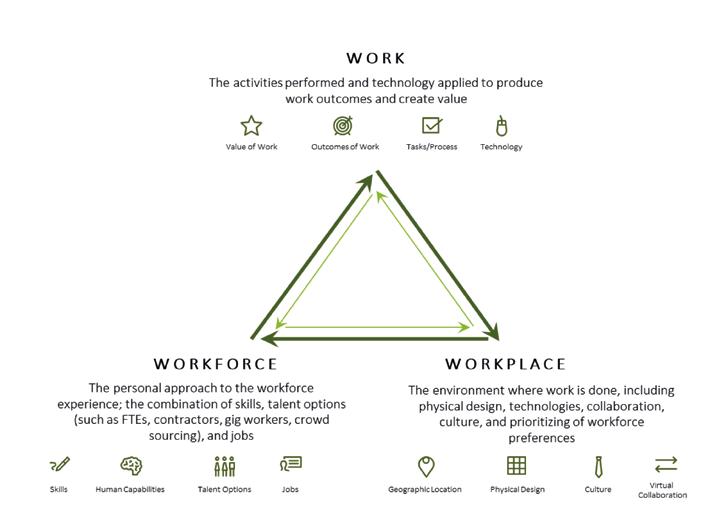
15 minute read
Global Tax Update
COVID-19/CORONAVIRUS At the time of writing this update in mid-September, the world of global mobility continues to see an unprecedented challenge as a result of Covid-19/ Coronavirus. Ever increasing globalisation is under pressure and business travel has largely ground to a halt. Indeed, access to some countries remains prohibited for nonnationals/citizens.
The reaction from Governments and tax authorities around the world has been relatively swift, with a variety of special measures and relaxations introduced to help employers and employees navigate the immediate issues that arise with filing deadlines, payment of taxes and lack of mobility.
Summarising the huge volume of measures undertaken so far remains a challenge, with rules and positions changing frequently. This article sets out some measures introduced in Belgium, Colombia, Hong Kong and the UK in order to provide a ‘flavour’.
BELGIUM The impact of coronavirus on international employment Following the coronavirus outbreak many countries, including Belgium, have taken measures to stop the spread of the virus. As of 18 March, 2020, companies in Belgium, with the exception of those who provided essential services, were obliged to organise working from home for every position where this was possible, and international travel restrictions were introduced. In this respect, you may wonder whether the disrupted work pattern of your employees, who normally work internationally, could have an impact on the applicable social security regime and the taxation of their employment income. We summarised the possible consequences in a previous update. In this article, you will find further information regarding bilateral agreements and formalities.
Principles Of The OECD Model Tax Convention On Employment Income In order to determine which country will be entitled to levy income tax on employment income, the tax treaty between the home country and the working country will apply. In principle, remuneration is taxed in the host country (and the home country if residence continues), unless certain conditions are met. The host country will generally exempt the income from the charge to tax if: • The employee does not spend more than 183 days during the calendar year or any 12-month period in the working country and The salary is not paid or borne by a formal or material employer in the working country and The salary is not borne by a permanent establishment or fixed base of the employer in the working country.
Bilateral Agreements The OECD issued a number of specific recommendations concerning the questions that have arisen with respect to cross-border employment situations in the lockdown period. The OECD confirms that the normal tax treaty provisions will continue to apply, but it will consult with the various countries in its efforts to prevent the unforeseen consequences of the tax shift as much as possible, and to mitigate the administrative burden as well.
Where the normal provisions of double tax treaties concluded by Belgium and other countries remain applicable, the increased physical presence in the home country due to quarantine and teleworking measures could lead to additional tax liabilities. The Belgian and foreign authorities of the Netherlands, Luxembourg, France and Germany have therefore concluded bilateral agreements on taxation under the double tax treaty following Covid-19.
Employees who work from home solely due to Covid-19 measures can remain taxable in the state where they previously worked prior to the outbreak of the pandemic. Do note that this only applies in relation to days worked at home due to Covid-19. The same rules apply to situations where the worker is temporarily unemployed and benefits from a continued payment of his/ her wages by the employer, or is entitled to temporary unemployment benefits (only for the agreement with the Netherlands). These agreements are applicable as of mid-March (i.e. 14 March for France, 11 March for the Netherlands, Luxembourg and Germany) until at least 30 June, 2020. We expect that further agreements will be concluded between the various member states of the European Union and possibly also with third countries.
Special Tax Status A foreign executive who benefits from the Special Tax Status in Belgium is taxed on their worldwide professional income as well as on other Belgian source income.
The most important advantages of the application of the Special Tax Status are: • The individual will be considered a Belgian non-resident for tax purposes • The individual will receive nontaxable allowances provided it can be demonstrated that the allowances are justified by actual costs incurred (i.e. taxfree allowances) • Income related to non-Belgian working days are excluded from the taxable basis (i.e. travel exclusion). Due to the pandemic, these expats have not been able to travel as much as they normally would. No specific tolerance has been introduced regarding these foreign executives. As a result, they will be not be able to exclude the teleworking days which they would have normally spent abroad and they will be taxed in Belgium on a higher tax basis. This has been explicitly mentioned in a FAQ issued mid-June. Logically, it would also mean that employees benefiting from the Special Tax Status who were forced to stay and work outside Belgium due to the restrictions, should be able to claim these days as foreign business days. The tax authorities however, have not taken any formal position in relation to this.
COLOMBIA Tax burden on individuals/expatriates in Colombia impacted by coronavirus Due to current circumstances, taxpayers that were affected because of border closures in
Colombia just before they reached 183 days within the country have consulted before the Tax Authority concerning the impact this has on their residence for tax purposes.
With regard to the 183 days test to trigger permanent tax residence and tax on worldwide Income, the Colombian Tax Authority has stated that the Covid-19 measures that affect travel out of Colombia would not impact the day count.
The Tax Authority has also stated that, as long as the individual declares a due force majeure argument, individuals who were not able to leave the country during the lockdown due to airport closures will not be considered to meet the day count for permanent residence.
The Colombian Government has not extended tax filing deadlines for individuals for 2019. This still remains 11 August to 21 October.
HONG KONG Second tranche of subsidies under the Employment Support Scheme (“ESS”) unveiled by the HKSAR government The Government announced on 18 August, 2020, details concerning the application of the 2nd tranche of subsidies under the Employment Support Scheme (“ESS”). Below are details of the application: 1. Subsidies will cover which period of staff wages?
Employers are expected to apply the fund to subsidise their payment of staff wages from September 2020 to November 2020. 2. When can employers expect to receive wage subsidies?
The 2nd tranche of subsidies would be disbursed in mid-September 2020 (the earliest). 3. Application procedures for second tranche of subsidies under ESS
The eligibility and procedures for application of the 2nd tranche as well as the formula on penalties and claw-back of the subsidy because of employers’ failure to fulfil their undertaking will remain unchanged as that of the 1st tranche, except for the following: • The employers may change the specified month previously selected from either
December 2019, January, February, or March 2020, as the “specified month”, as the basis of calculation of the subsidy (whilst there will be no change of headcount measured against the employer’s headcount as per MPF/ORSO contribution record in March 2020); and • The employees whose age reached 65 or above, even if their employers have not paid salary and made MPF voluntary contribution for them in March 2020 or thereafter, but if they still maintain their
MPF accounts with the MPF trustee, will get HK$5,000 per month per employee in subsidies. The employers of the elderly employees who receive the subsidies have
to undertake to spend all the wage subsidies on paying wages to their employees. The Government has also set requirements for two leading supermarket chains (Park’nshop and Wellcome) and large-scale estate management firms to undertake extra commitments upon receipt of the 2nd tranche of subsidies under ESS: • The large-scale estate management companies will be required to contribute 80% of the 2nd tranche of the subsidy they receive to subsidise the residents and/ or the incorporated owners of properties for the maintenance fee and property management fee; and • Park’nshop and Wellcome will be required to contribute the 2nd tranche of the subsidy they receive to either provide discounts for customers, or offer coupons for socially vulnerable groups.
UK Calculating National Insurance contributions where current location of assignee impacted by coronavirus The rules for National Insurance contributions depend on which country your employee is going to work in. Due to coronavirus, HMRC has agreed to allow an easement for employees temporarily returning to work in the UK from a country outside the EU, EEA or Switzerland, where the UK does not have a reciprocal agreement.
Where an employee returns to the UK to work on a temporary basis, the situation will depend on the nature of the duties being carried out.
If the duties are incidental to the overseas employment such as a briefing or further training for that employment then treat the employee as still abroad. You should continue to deduct Class 1 contributions until the 52 week period of Class 1 liability is met.
If the duties are not incidental to the overseas employment and the 52 week period of liability has ended, you can: • Disregard the first 6 weeks of employment in the UK. This is not a legal requirement but a concession to ease administration when an employee briefly returns to the
UK - it only applies where they return to the UK for the same employer • Pay contributions in the normal way for any further period in the UK. Where the 52 week period has not ended, it is not extended by any period of employment in the UK which falls within it.
If the employee goes to work abroad again once it is safe to do so and any existing liability period has ended, Class 1 National Insurance contributions will continue to be paid for 52 weeks starting from the contribution week in which the overseas employment begins.
A further period of liability will arise only if: • The employer has a place of business in UK • The employee is ordinarily resident in UK • Immediately before the start of the employment the employee was resident in the UK. For employees working in an EU, EEA country or Switzerland due to coronavirus, social security contributions or UK National Insurance should continue to be paid as usual, unless you’re advised otherwise. Please note that that majority of countries covered by the EU Social Security Regulations are now advising that A1 certificates must be obtained after an initial relaxation of this obligation. For those working in a country where a reciprocal agreement is in place, advice should be sought on the correct course of action.
Coronavirus/C-19 Testing Provided By Employers For Their Employees It has been confirmed recently by HMRC that Covid-19 testing supplied to employees by the employer is treated as a benefit in kind. As this particular benefit in kind is directly related to Covid-19 it can be reported through the PAYE Settlement Agreement where the employer can either pay the
income tax or national insurance on behalf of their employees.
HMRC Clarification On Statutory Residence Test Relaxations As A Result Of Coronavirus Over the past few months HMRC has provided a number of comments in relation to the impact of Covid-19 on UK tax residence and the Statutory Residence Test (SRT). They recognise that the pandemic has hampered the ability to move freely to and from the UK and the knock on effect this may have on an individual’s tax position. The SRT has always allowed certain flexibility in counting UK days where an individual is in the UK due to exceptional circumstances. This very much has to be reviewed on a case by case basis however.
HMRC has now published guidance to help taxpayers understand where they consider days spent in the UK to be “exceptional” due to Covid-19 and therefore where these days can be disregarded when counting total days spent in the UK for SRT purposes. This must be read in conjunction with the current published guidance on exceptional circumstances along with the SRT guidance and legislation as a whole.
The guidance has been included as Annex D of the SRT and covers areas such as: 1. Whether government imposed travel restrictions count as exceptional circumstances. 2. Confirmation there is no relaxation to the maximum 60 day count for exceptional circumstances. 3. How periods of self-isolation are treated. 4. Working remotely in the UK. 5. Coming to the UK to care for vulnerable family members. 6. Interaction with double tax treaties. Although the published guidance is very welcome, its application must be considered within the wider context of the SRT and preexisting HMRC materials and tax legislation. Each scenario must still be reviewed on a case by case basis. This is not a blanket agreement to allow up to 60 days spent in the UK to be disregarded for any taxpayer spending additional time in the UK due to the pandemic. The practical application of these measures and HMRC’s approach will be seen over the coming months and years, especially with regard to 2019/20 and 2020/21 UK tax returns and current payroll processing for companies. As the situation continues to unfold there may also be further guidance published by HMRC.
Travel And Subsistence Expenses Paid By Employers To Employees Travelling To Temporary Workplaces It has been advised by HMRC that if your employee was furloughed when they were travelling to a temporary workplace, the period of furlough is classed as a period of continuous work. A period of working from home will also be classed as a period of continuous work.
However, the workplace stops being temporary from the date that attendance there is expected to be more than 24 months. Tax and National Insurance contributions will then become liable on any payments of travel and subsistence expenses.
Working From Home - Becoming The New Normal? Permanent Establishment Creation? Due to the current situation and the UK entering into the “new normal”, more and more people are working from home more frequently, this trend may continue beyond any reduction in the levels of coronavirus. One of the issues that arises from this however, is the potential creation of a Permanent Establishment for a non-resident entity.
A Permanent Establishment is created under the following conditions: • Where there is a fixed place of business in the
UK through which the business is operated • Where there is an agent acting on behalf of the business which habitually concludes contracts in the name of that business. For there to be a fixed place of business, the following three features must be present: • There must be a geographical place of business • That place must be fixed • The non-resident’s business must be carried on through that place. An employee working from home will not usually create a permanent establishment however, if the work that is being done by the employee is considered as trade such as closing contracts and/or making strategic decisions for the company, this can be seen to create a permanent establishment. Each case is judged individually by HMRC and more guidance has recently been released stating that the rules allow flexibility due to Covid-19.
That being said, the case is different for self-employed individuals, as the work being carried out will constitute as trade. However, each case is judged individually by HMRC depending on facts presented.
As well as the potential of creating a Permanent Establishment, other aspects need to be considered when making the decision to allow your employees to work from home, such as whether it is practical for the employee to work from home. For example, if the equipment the employee needs to be able to work isn’t readily available for them or cannot be moved from the original workplace to the home, it would not be practical for the employee to work from home.
Also, in some countries an employee may incur extra income tax to be paid if they are in a different jurisdiction from where they usually work. Following on from this point, social security may be an issue, but only if the home of the employee is in a different country from the one in which they usually work.
Whilst working from home might seem to be an ideal response and situation for employer and employee alike, do consider all implications before agreeing to permanently change working practices and contractual arrangements.
BDO General Comment As mentioned at the outset of this article, global taxation and social security rules continue to change and relaxations are being introduced and then varied as we continue to live with the impact of the coronavirus. Do check with your adviser and our BDO Global website www.bdo.global/en-gb/home for the latest information. We will undoubtedly see future legal challenges by international assignees, business travellers and employers where adverse fiscal impacts arise as a result of coronavirus restricted travel, coupled with a genuine lack of choice. However, given the increased flexibility demonstrated by tax authorities and governments to date it is certainly worthwhile approaching them first to see where compromises and agreements can be reached without relying on formal action. We might yet be surprised by their response.
For current up to date global changes, please do visit the BDO Global website www.bdo.global/en-gb/home.
Prepared by BDO LLP. For further information please contact Andrew Bailey on 0207 893 2946 or at andrew.bailey@bdo.co.uk










